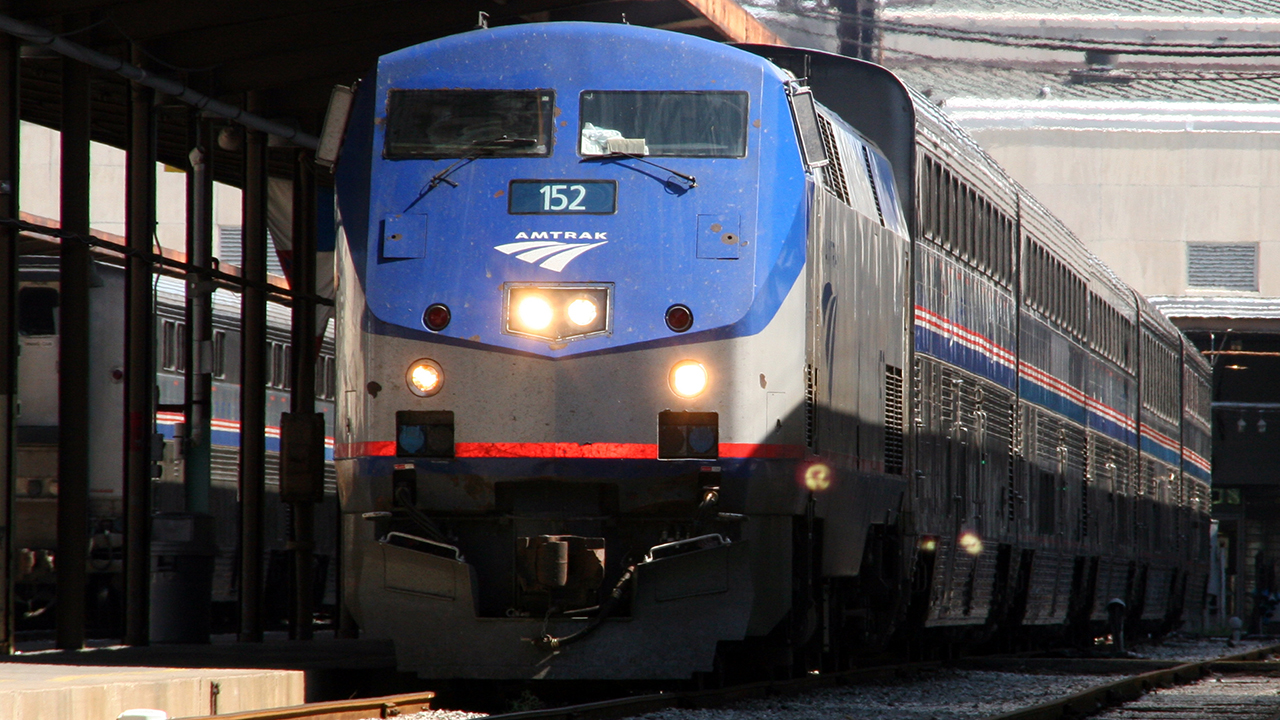roger1818
Senior Member
I dont mean "BUILD" an ROW, but build a service that people can use and they will use it. Taking into consideration the price of gas today and traffic.
How do you build a service without access to a ROW?
I dont mean "BUILD" an ROW, but build a service that people can use and they will use it. Taking into consideration the price of gas today and traffic.
It's not like the Dundas sub is packed to the brim with CN freight.How do you build a service without access to a ROW?

Does the surface transportation board have the power to force CN to allow Amtrak to have better priority on their network?

So basically CN dispatch doesn't give a F about passenger trains.I don't think so. IIRC, railways need to provide access but not necessarily priority access*. Many Amtrak routes have less than 40% on-time performance, caused more by dispatch priority than actual congestion: following a freight train 100's of miles on otherwise lightly used track.
* Not technically true, but Amtrak cannot do anything about it. The Department of Justice would need to take action on Amtrak's behalf, and they never have.
This bill, however, would have given Amtrak some ability to force railways to cooperate with them on performance metrics by giving Amtrak the ability to sue them directly without DOJ involvement.

Text - S.1500 - 117th Congress (2021-2022): Rail Passenger Fairness Act
Text for S.1500 - 117th Congress (2021-2022): Rail Passenger Fairness Actwww.congress.gov
It's not like the Dundas sub is packed to the brim with CN freight.
I thought that Metrolinx spent a ton of money to add an additional track and a bridge between Aldershot and Bayview Junction and additional capacity at Bayview Junction?Ummmm…..
The first 15 miles west from Aldershot are a rather significant grade - it’s the ruling grade for the whole line. Freights lose speed on the grade, so they are only moving at 10-20 mph over that zone. And they seem to frequently stall, tying up the line until another set of engines can be sent to rescue them. The next set of crossovers are at Copetown, meaning that once a westbound train passes Aldershot, the line is effectively single track until that train passes Copetown. That can easily take an hour every time a freight runs - put a VIA behind it and the passenger train will face delay.
There is also more on-line switching done on the Dundas Sub than east of Toronto where switching locations are spaced further apart.. Brantford, Paris, Beachville all see local service; London is a setoff/lift yard…. more congestion.
Everything about the reality of freight and passenger not being compatible any more because of speed/passing/overtaking constraints plays out in spades on the Dundas Sub. CN will not be offering VIA an abundance of added slots on that line.
- Paul
That capacity increase was for GO service only, and into Hamilton.I thought that Metrolinx spent a ton of money to add an additional track and a bridge between Aldershot and Bayview Junction and additional capacity at Bayview Junction?
So basically CN dispatch doesn't give a F about passenger trains.
We should have something like that in Canada, maybe the Canadian will actually be on time for once. 9 hours from Parry Sound to Toronto is insane when you can do it in a car in 3.
To put it into perspective.....It depends who you include in “dispatch”. I know several RTC’s personally, and some appreciate VIA and do their best to keep VIA moving.
But at a more official level, you can be sure that freight comes first and VIA’s operations will not stand in the way of that. And the RTC’s know that if they delay a freight, they will catch it. Everybody has a boss.
- Paul
So if they did something similar to what was done on the Kingston sub, CN would be more likely to play ball?CN is neither a government agency nor a charity and they are liable to their shareholders for putting their interests first. Major European countries invest annually between 40 and 567 Euros (C$54-763) per capita into their rail infrastructure, which translates to C$2-29 billion of taxpayer money invested into this country's rail infrastructure:
View attachment 406524
Source: Allianz pro Schiene
I'm not saying that the taxpayer is getting a bad deal, but he gets what he pays for (i.e. almost nothing)...
You mean the pay-and-pray approach?So if they did something similar to what was done on the Kingston sub, CN would be more likely to play ball?
But was that an assumption without a guarantee from the host railway? Need to hold them to it. Penalties if a certain threshold is not achieved.
But was that an assumption without a guarantee from the host railway? Need to hold them to it. Penalties if a certain threshold is not achieved.
Or could VIA own that third track exclusively?




